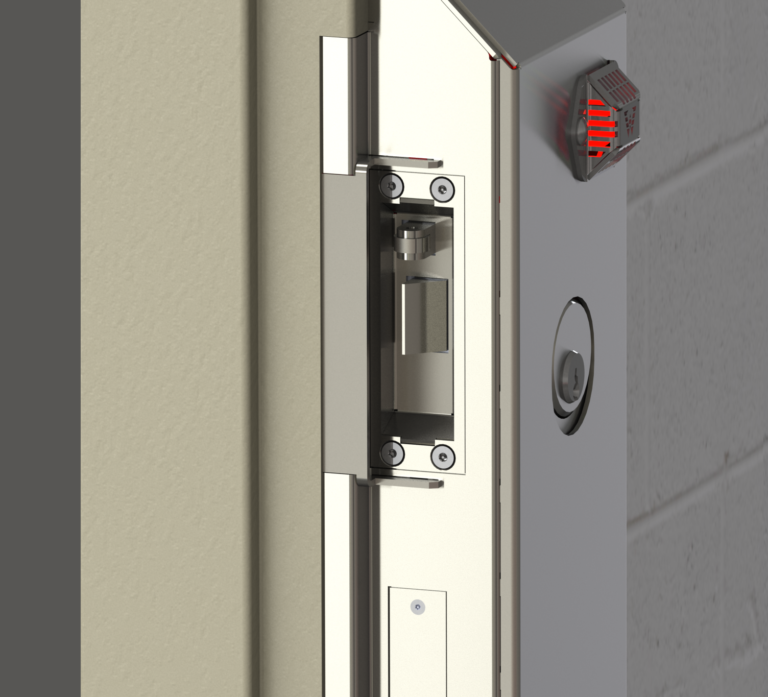Arizona Plans $24 Million Forensic Treatment Facility
PHOENIX — A new $24 million forensic facility that will house and treat Arizona’s most seriously mentally ill offenders is in the early design phase, with construction expected to begin this summer.
The 70,000-square-foot, 80-bed hospital will replace the existing Arizona State Hospital, which houses offenders judged mentally incompetent to stand trial or sentenced to confinement for mental health treatment.
Cannon Design, of Boston, is the architect of record for the replacement facility, which will employ color strategies and natural light to provide a soothing and healing environment for patients that is also secure.
The facility design embraces a passive perimeter security model that eliminates the need for conventional overt security measures, such as razor wire and watchtowers. Hospital buildings will be oriented around a central courtyard to provide a secure perimeter that prevents criminal patients from leaving the grounds.
The 50-year-old state hospital was outdated and offered few amenities or resources to treat criminal patients with mental health issues, according to Stan Bates, chief of security with the hospital and a county representative on the project.
“The original facility was not built to house violent criminal offenders,” Bates says. “It was built in the 1950s to house tuberculosis patients with mental health issues — much different issues than those that forensic patients present to the staff.”
The new facility will accommodate male and female adult offenders who have been found guilty but ruled insane and sentenced to confinement for mental health treatment. The facility will also house pre-trial offenders committed under court order for restoration to competency, officials say.
The project presents several challenges to the county and the design team, including space restrictions and the need to protect the public, as well as to provide mental health treatment for offenders with dual diagnoses for other issues such as substance abuse, Bates says.
The old facility will be torn down and replaced with the new hospital in phases to accommodate hospital operations and continue providing treatment to existing patients.
“The entire existing forensic population will continue being housed in its current location while we construct a new forensic hospital on other portions of the state hospital campus,” Bates says.
Officials are optimistic the new hospital design will improve security and provide staff with the facilities necessary to treat patients who have an extensive history of violence. The existing entrance to the hospital campus will be moved to a different location that includes a new security gatehouse.
Construction is expected to start this summer and will be managed by Gilbane Inc., of Providence, R.I. Preliminary site work, including surveying, is under way, and architects are developing schematic drawings.






